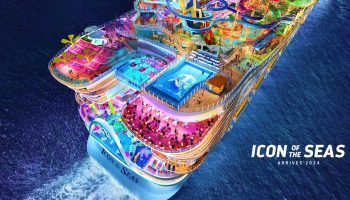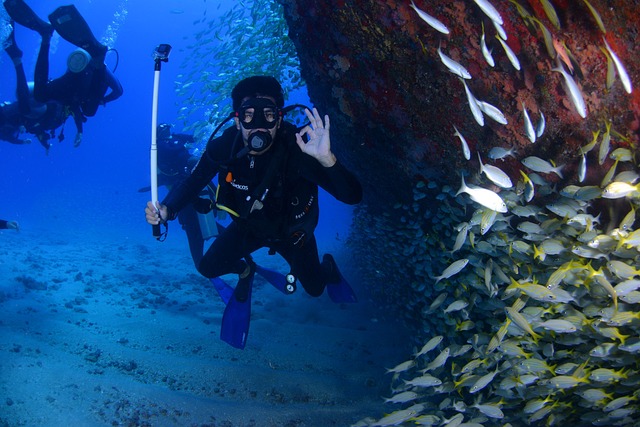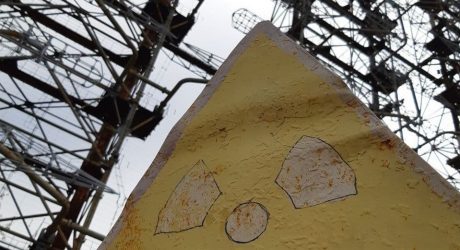Ever wondered what it feels like to explore the wonders of the underwater world? Which is better between Snorkeling vs Scuba Diving?
Well, snorkeling and scuba diving are two fun ways to dive into the deep blue sea and see incredible marine life! However, they’re not the same thing. Before you start your underwater adventure, it’s important to know the difference between snorkeling and scuba diving.
So let’s dive in and learn more about these exciting water activities!
1. Equipment
For snorkeling, you only need a few things. A snorkel is a breathing tube that sticks out above the water’s surface. You’ll also need a mask to see what’s below and fins to swim quickly near the top. Because the gear is pretty simple and easy to use, it can be used by newbies and people who aren’t used to using complicated gear.
For scuba diving, on the other hand, you need a bigger and more specific set of gear. Divers use a scuba tank that is filled with compressed air or a certain combination of breathing gases, a regulator to control the flow of air, a buoyancy control device (BCD) to control their buoyancy, a wetsuit or drysuit to keep them warm, a weight belt to make sure they are properly buoyant, and other gear. Together, these pieces of gear let divers experience underwater activities and learn more about the underground world.
2. Depth and Duration
Since snorkeling is mostly done at the water’s top, you can only explore shallow depths. It’s great for looking at marine life and underwater features in places that aren’t too deep. Because snorkelers breathe from the top, the length of time they can stay in the water is limited by their lung capacity and comfort level.
It depends on the type of dive and the amount of certification the scuba diver has, but they can go to a lot more depths. Because they take their air supply with them in a scuba tank, certified divers can go to great depths and stay underwater for long periods of time. In this way, they can explore parts of the ocean that snorkelers can’t reach.
3. Breathing
When you snorkel, you breathe through a tube that sticks out above the water’s surface. This lets you take in air from the air above. It comes naturally when you breathe like you would above water.
Scuba divers connect a regulator to their scuba tank, which holds either compressed air or a special gas for breathing. Divers can breathe underwater by taking air from the tank through this setup. It gives you the freedom to explore the depths while keeping your air supply steady.
4. Mobility
Snorkelers can move around on the water’s surface and swim along it. It’s easy for them to get back to the top to breathe or rest.
Scuba divers have more room to move around and can see the undersea world in three dimensions. With their BCD, they can go down and up at will and hover at different depths. This movement makes it easier to get a full picture of the underwater landscape and sea life.
5. Certification
Snorkeling does not typically require formal certification. Most people can learn the basics quickly, and it’s accessible to beginners and children.
Scuba diving necessitates formal certification from a recognized agency like PADI, NAUI, or SSI. To become a certified diver, individuals must complete a comprehensive course that includes theory, confined water training, and open water dives. Certification ensures that divers understand the equipment, safety protocols, and diving techniques.
6. Safety
Most people think snorkeling is a safe activity to do in the water because it takes place close to the surface and getting back to the surface for air is quick and easy. But basic safety rules should still be followed, like keeping an eye out for changing weather and sea life.
There are more risks when you scuba dive, such as decompression sickness, barotrauma, and other dangers underwater. To scuba dive safely, you need to get the right training, follow the safety rules, and carefully plan your dives. Divers need to know their depth, how much air they have, and how their bodies are doing to lower the risks that could happen.
7. Interaction with Marine Life
Snorkelers often have the advantage of being able to observe marine life from a closer vantage point due to their proximity to the surface. While snorkeling, you can watch fish, coral, and other underwater creatures without the disturbance caused by scuba bubbles. This can make for more intimate wildlife encounters.
Scuba divers can explore marine life in a more immersive way and can reach greater depths where some species reside. However, the bubbles released from scuba regulators can sometimes startle or deter marine life, which may make interactions with certain animals less intimate than snorkeling.
8. Training and Skill Level
Snorkeling is relatively easy to learn, and most people can become proficient in a short amount of time. It doesn’t require as much formal training or the development of complex skills.
Scuba diving demands more extensive training. Divers must complete a certification course that covers essential knowledge, equipment operation, underwater navigation, and safety procedures.
Divers also need to develop skills for buoyancy control, equalization, and emergency responses. The level of expertise required for safe scuba diving is higher than that for snorkeling. For those interested in scuba diving and looking for comprehensive training, considering Bukit Panjang swimming lessons can be a great way to begin their underwater exploration journey.
9. Cost and Maintenance
The gear you need for snorkeling is pretty simple and not too expensive. The basic gear, like a mask, snorkel, and fins, is pretty cheap and doesn’t need much upkeep. This means that snorkeling is an easy and inexpensive water exercise for a lot of people.
A bigger financial investment is needed to go scuba diving. It can get expensive to get scuba gear, go through official training, pay for certification, and keep your gear in good shape.
Understanding the Difference Between Snorkeling and Scuba Diving
In conclusion, both snorkeling and scuba diving unlock the magic of the underwater world. Snorkeling is a cost-effective, accessible, surface-level exploration suitable for beginners and children. On the other hand, scuba diving is a deeper, more immersive endeavor requiring investment in specialized equipment, comprehensive training, and certification.
Understanding the difference between snorkeling and scuba diving is crucial when embarking on a journey to the ocean. The choice between them depends on your comfort level, proficiency, and sense of adventure. Happy diving!
If you enjoyed this article, our blog will be your next favorite resource.
Read Also:




























